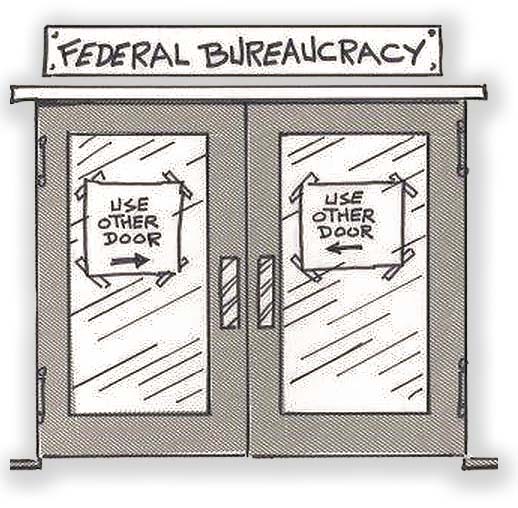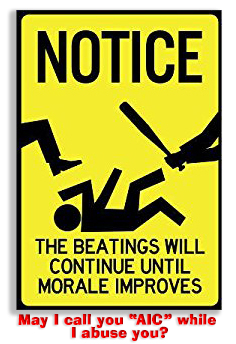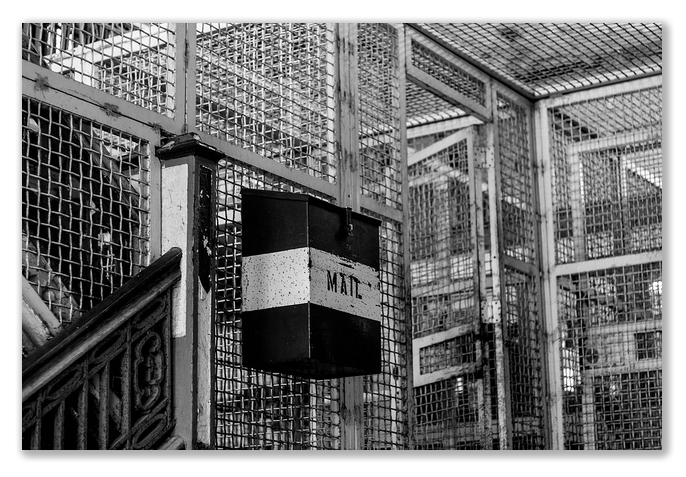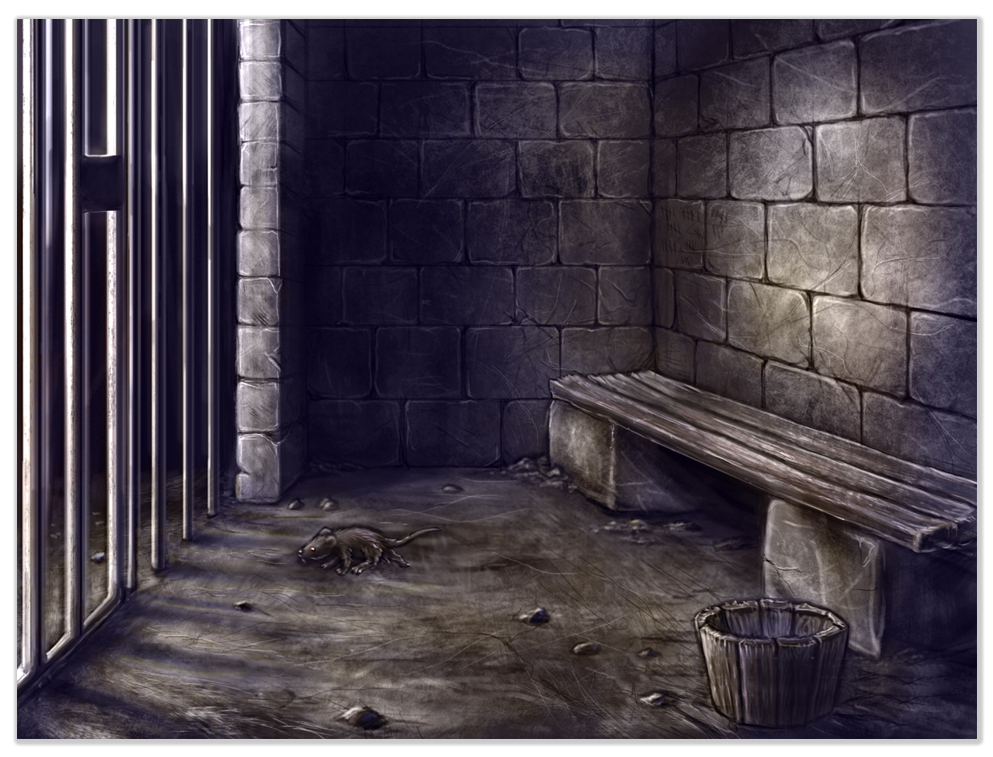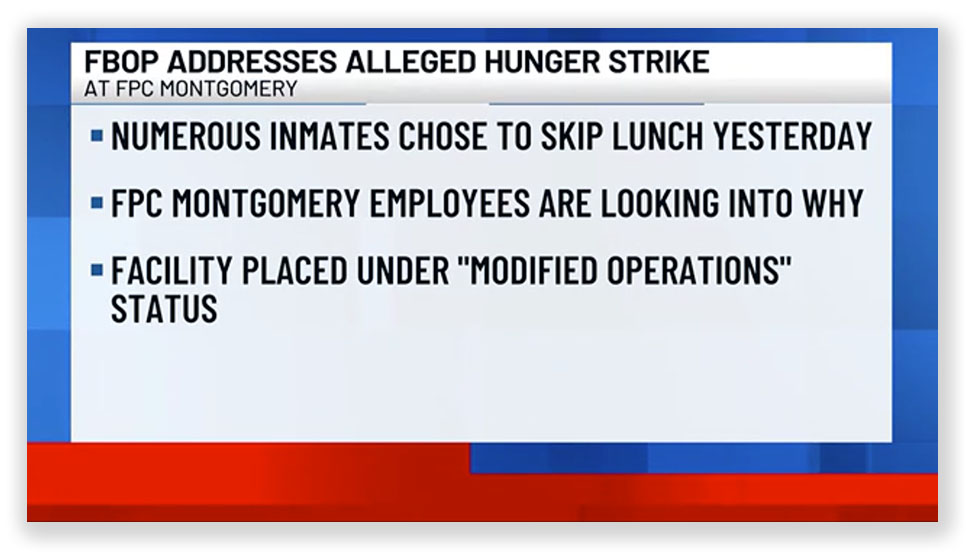We post news and comment on federal criminal justice issues, focused primarily on trial and post-conviction matters, legislative initiatives, and sentencing issues.

BOP EMPLOYEES FEEL OUT OF ‘SORTS’
From the 10th Circuit this week comes a fascinating case – not so much for the dry-as-toast legal issue – whether under the Westfall Act, 28 USC § 2679, government employees were acting outside the scope of their employment when they assaulted fellow employees, but for the juicy facts, a Bureau of Prisons training exercise gone bad, punching them and (for good measure) administering a bit of tear gas.
 BOP employees at FCC Florence were practicing how to respond to a hostage situation. The setting was a BOP office that, for the exercise, was assumed to be under the control of rioting inmates. BOP policy directs that in such a case, employees are to find a safe space in which to shelter, and to not let anyone in under any circumstances. For example, a fellow employee at the door begging for admission should be denied, because he or she might be under the control of a bad guy and being forced to try to get the shelterers to open the door.
BOP employees at FCC Florence were practicing how to respond to a hostage situation. The setting was a BOP office that, for the exercise, was assumed to be under the control of rioting inmates. BOP policy directs that in such a case, employees are to find a safe space in which to shelter, and to not let anyone in under any circumstances. For example, a fellow employee at the door begging for admission should be denied, because he or she might be under the control of a bad guy and being forced to try to get the shelterers to open the door.
In a hostage situation, the BOP first employs a team of people trained to negotiate a peaceful settlement. Only when that fails does the Bureau send in its Special Operations Response Team – the SORT Team – the agency’s own version of a SWAT Team, which is charged with using force to bring an end to the standoff.
In the Florence exercise, several employees hid in a cashier’s cage to which only one of the people taking refuge there had a key, a decision consistent with their training. However, during the drill, the BOP staff barricaded in the cashier’s cage overheard a radio call that they reasonably interpreted as meaning that rioters had taken control of the SORT Team by compromising one of the SORT squad members.
The negotiating team failed to bring the play-acting hostage situation to a peaceful conclusion (obviously, because had it done so, the SORT guys would not have had a chance to do their stuff). SORT crashed the practice and took down the pretend hostage-takers. It was then that everything went off the rails.
 The SORT Team stood outside the cashier’s office door and instructed those inside to open it. The barricaded employees refused to answer, believing the claims that the inmates had been subdued to be a ruse. The SORT squad members became more strident in their demands, but the sheltering employees remained mute. Frustrated by this SORT member Chad Weise threatened to throw a flash strip – a kind of explosive charge – under the door.
The SORT Team stood outside the cashier’s office door and instructed those inside to open it. The barricaded employees refused to answer, believing the claims that the inmates had been subdued to be a ruse. The SORT squad members became more strident in their demands, but the sheltering employees remained mute. Frustrated by this SORT member Chad Weise threatened to throw a flash strip – a kind of explosive charge – under the door.
At that point, one of the employees broke the silence and told SORT that there were people inside the cage. As the Circuit described it, the SORT squad
then repeatedly slammed their bodies against the cage door, demanding that plaintiffs open it, and threatened to deploy oleoresin-capsicum spray (OC spray) if plaintiffs did not comply… Next, Weise used a tool to pry open the steel shutters of the cashier’s window. At that point, one of the non-plaintiff individuals sheltering in the cashier’s cage demanded that defendants stop destroying government property and shouted ‘out of role’—a phrase that any BOP employee can use during a mock exercise to immediately end the exercise for safety reasons, and a phrase that no defendant ever used throughout the entire incident. Plaintiffs also repeatedly explained to defendants that they would not open the door because they believed that SORT was compromised. Even so, [one] SORT member… fired Simunition rounds at or into the cashier’s cage; five such rounds were recovered from inside the cage.
Meanwhile, the SORT squad continued to threaten to use OC spray, “and plaintiffs repeatedly responded by shouting that it was against BOP policy to use OC spray on staff.” The SORT squad radioed for permission to use the OC spray. “Authorization was never received. Undeterred, Weise notified the command center by radio that he was going to use the OC spray and then sprayed two bursts—one at the cashier’s window and one underneath the door of the cashier’s cage. Plaintiffs’ eyes began to burn, they began to cough and have difficulty breathing, and they shouted ‘out of role’ continuously.”
Three SORT officers finally pushed their way into the cashier’s cage in full tactical gear. “They told plaintiffs to get on the ground, which was not possible given the size of the room, the furniture, and the number of people in it,” the 10th said. Then, the three “repeatedly started punching and hitting the individuals inside the cashier’s cage, even though plaintiffs and the other individuals in the cage continued to shout ‘out of role…’ All three officers began punching the sheltering employees, and one shot an employee” in the chest at point [b]lank with a Simunition round, which burned through [his] shirt and left a bleeding laceration on his chest.”
 The district court found that “BOP policy prohibits the use of OC spray and Simunition rounds in the absence of any threat, and the BOP’s employee-conduct standards state that ‘[a]n employee may not use physical violence, threats, or intimidation . . . toward fellow employees…’ At no point during these events did defendants report a real emergency to the prison’s command center. Thus, the district court concluded that defendants had violated BOP policy and had ‘no legitimate belief of a real threat or emergency situation to justify the incidents that occurred’.”
The district court found that “BOP policy prohibits the use of OC spray and Simunition rounds in the absence of any threat, and the BOP’s employee-conduct standards state that ‘[a]n employee may not use physical violence, threats, or intimidation . . . toward fellow employees…’ At no point during these events did defendants report a real emergency to the prison’s command center. Thus, the district court concluded that defendants had violated BOP policy and had ‘no legitimate belief of a real threat or emergency situation to justify the incidents that occurred’.”
Four of the sheltering BOP employees sued six of the SORT team officers for state-law assault claims, but the government stepped in. Under the Westfall Act, 28 USC § 2679, federal employees are absolutely immune from state-law tort claims that arise out of acts they undertake in the course of their official duties. In a civil action raising state-law tort claims against a federal employee, Westfall lets the government certify that the employee was acting within the scope of his or her employment at the time of the incident.
That’s what the government did here. However, the district court rejected the Westfall certification. The government appealed. Last week, the 10th Circuit agreed with the district court.
In assessing the scope of employment, courts apply the respondeat superior law of the state where the incident occurred. Colorado’s two-pronged test for determining whether an employee’s alleged intentional tort is within the scope of employment requires that the employee must (1) be doing the work assigned by the employer, or what is necessarily incidental to that work, or customary in the employer’s business and (2) have the intent in committing the tortious act to further the employer’s business.
 The Circuit found that the SORT defendants had abandoned their legitimate work of clearing the business office by making no effort to communicate to plaintiffs that the exercise was over, using OC spray and Simunition in violation of BOP policy, and “essentially engaging in combat with staff members.” The 10th agreed with the district court that the SORT team’s “conduct was not intended to further the BOP’s business. Instead, the district court concluded that defendants acted out of frustration in response to plaintiffs’ justified refusal to respond to defendants’ questions and demands to exit the cashier’s cage.”
The Circuit found that the SORT defendants had abandoned their legitimate work of clearing the business office by making no effort to communicate to plaintiffs that the exercise was over, using OC spray and Simunition in violation of BOP policy, and “essentially engaging in combat with staff members.” The 10th agreed with the district court that the SORT team’s “conduct was not intended to further the BOP’s business. Instead, the district court concluded that defendants acted out of frustration in response to plaintiffs’ justified refusal to respond to defendants’ questions and demands to exit the cashier’s cage.”
The suit can now continue against the six SORT officers in district court.
Arroyo v. Hall, Case No. 22-1307, 2024 U.S. App. LEXIS 22928 (10th Cir. Sep. 10, 2024)
– Thomas L. Root


 The BOP Office of Public Affairs reported that as of January 1, 2019, the BOP was contracting for 10,408 halfway house beds. As of two months ago, the BOP contracted for 10,553 halfway house beds. Pavlo wrote that “the BOP is now telling some halfway house providers… that they are canceling some solicitations for additional capacity because of ‘budgetary and staffing considerations.’”
The BOP Office of Public Affairs reported that as of January 1, 2019, the BOP was contracting for 10,408 halfway house beds. As of two months ago, the BOP contracted for 10,553 halfway house beds. Pavlo wrote that “the BOP is now telling some halfway house providers… that they are canceling some solicitations for additional capacity because of ‘budgetary and staffing considerations.’” “BOP could look to modify those existing contracts to increase the number of beds available,” Pavlo wrote.
“BOP could look to modify those existing contracts to increase the number of beds available,” Pavlo wrote.









